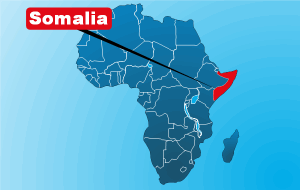
Sunday, June 30, 2019
The Ministry of Petroleum and Mineral Resources of the Federal Republic of Somalia announced details of the Petroleum Ownership Management and Revenue Sharing Agreement between the Federal Government of Somalia and its Member States, which are now enshrined in the Petroleum Law. This follows the passing of the Petroleum Law through the Parliament of the Federal Republic of Somalia on 20 May 2019. This is a landmark in the development of Somalia’s natural resources, which will be transformational for the country’s economic progress.
The Petroleum Ownership Management and Revenue Sharing Agreement details two critical elements: first, it established, under law, that Somalia’s mineral and natural resources are owned by the Somali people and shall be represented by the Federal Government and Member States and those belonging to them; and, secondly, it mandates how future revenues from the development of the petroleum industry will be shared between The Federal Government, the country’s six constituent Members States and their local communities. It is for each Member State, through their elected representatives, to decide on how their share of these revenues is to be invested. Overall the Petroleum Ownership Management and Revenue Sharing Agreement delivers a significantly higher percentage of potential revenues to non-Federal institutions than any comparable national petroleum revenue sharing agreement around the world. For example, in Indonesia, central government retains 85% of oil revenues; 87% in Nigeria and 98% in Sudan, compared to only 55% (offshore) or 30% (onshore) in Somalia.
The basic principles of the Agreement are designed to ensure equitable investment in development across the whole country while recognizing the differing requirements in regions that will be closely involved in production. The allocation of revenue has been carefully calculated to take account of the potential social and environmental impact of the development and production of an oil industry, the revitalization of the local economy, and the resources that will be required to increase security and develop the essential institutions and infrastructure. The Agreement also enshrines the fair and transparent management of potential revenues to the Federal Government under the supervision of the Central Bank with all potential revenues to be deposited in a Special Account under independent supervision.
Recently completed seismic programs indicate a high likelihood that oil is present in Somalia’s offshore territories. The studies revealed similar geological structures to those with proven oil and gas reserves in neighboring basins located in Seychelles, Madagascar, Kenya, Tanzania and Mozambique. Early indications suggest that Somalia could become one of the most significant offshore oil producing countries in East Africa.
The process for licensing up to 15 blocks, covering a total area of approximately 75,000 square km, was launched in February 2019 with a potential bid date scheduled for November 2019. No blocks in the area currently under dispute with Kenya will be part of this or future licensing rounds until settlement is reached. The Petroleum Law also establishes a Petroleum Registry for legacy right holders. It also updates the Production Sharing Agreements (“PSAs”) setting the key requirements for environmental protection and attractive fiscal terms in the event of any discoveries and subsequent development.
Commenting on the Revenue Sharing Agreement His Excellency Abdirashid Mohamed Ahmed, The Minister of Petroleum & Mineral Resources, said: “Our Petroleum Revenue Sharing Agreement is globally unique, delivering by far the highest percentage of potential revenues to non-Federal institutions of any comparable agreement. The Member States will play a pivotal role in allocating resources for the benefit of all the Somali people. As a result, we will be able to achieve fair and equitable development across the whole country. Whilst it will take many years for production to commence, if commercially recoverable oil reserves are discovered, this Agreement has the potential transform the lives of all the people of Somalia. “